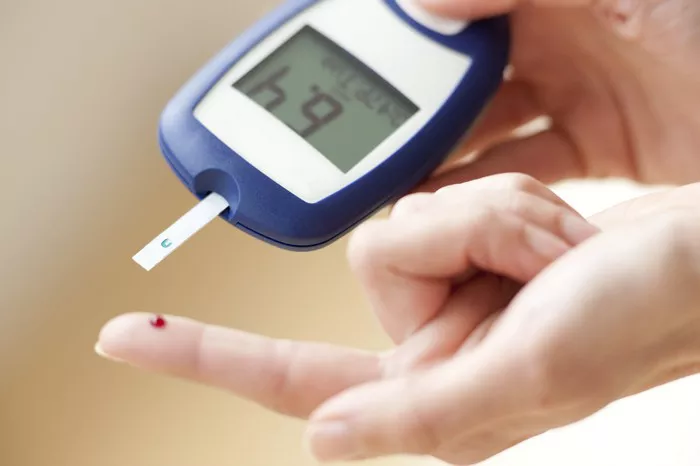Diabetes, a chronic condition characterized by elevated blood glucose levels, can lead to severe complications if not managed effectively. When diabetes progresses to an advanced stage, often referred to as “end-stage diabetes” or “diabetes at its terminal stage,” it can result in life-threatening complications. End-stage diabetes typically involves significant damage to multiple organ systems, making it crucial to recognize the symptoms early and seek appropriate medical care. This article delves into the symptoms of end-stage diabetes, exploring how they manifest and what they signify in the context of the disease’s progression.
What is End-Stage Diabetes?
End-stage diabetes refers to the final phase of the disease, where complications have severely affected the body’s vital organs. This stage is often characterized by advanced kidney disease (end-stage renal disease or ESRD), severe cardiovascular complications, and other critical conditions that are difficult to manage. The symptoms at this stage are often the result of prolonged hyperglycemia, poor blood sugar control, and the cumulative damage inflicted on various organ systems over time.
Symptoms of End-Stage Diabetes
End-stage diabetes manifests with a range of symptoms, which can vary depending on the specific organs affected. Here are the key symptoms associated with this advanced stage of diabetes:
1. Severe Kidney Failure (End-Stage Renal Disease)
Kidney failure is one of the most common and serious complications of end-stage diabetes. As diabetes progresses, the kidneys may lose their ability to filter waste and excess fluids from the blood, leading to end-stage renal disease (ESRD). The symptoms of severe kidney failure include:
Severe Fatigue: The buildup of waste products in the blood can lead to overwhelming fatigue and weakness.
Edema: Swelling, particularly in the legs, ankles, and feet, due to fluid retention.
Changes in Urination: A decrease in urine output, or in some cases, complete cessation of urination.
Nausea and Vomiting: Uremia (the buildup of waste products in the blood) can cause nausea, vomiting, and a metallic taste in the mouth.
Breathlessness: Fluid buildup in the lungs can cause difficulty breathing, particularly during physical activity or while lying down.
Confusion and Cognitive Impairment: Uremic encephalopathy can lead to confusion, difficulty concentrating, and other cognitive impairments.
2. Cardiovascular Complications
Cardiovascular complications are a significant concern in end-stage diabetes, often leading to severe outcomes such as heart attacks and strokes. Symptoms associated with cardiovascular issues include:
Chest Pain (Angina): Persistent chest pain or discomfort, which may radiate to the arms, neck, or jaw, is a common symptom of coronary artery disease.
Shortness of Breath: Difficulty breathing or shortness of breath, especially during exertion, may indicate heart failure or other cardiac complications.
Palpitations: Irregular heartbeats or palpitations may occur due to arrhythmias or other heart-related conditions.
Swelling (Edema): Swelling in the legs, ankles, and feet due to fluid retention may be a sign of heart failure.
Fatigue and Weakness: Generalized fatigue and weakness may result from decreased cardiac output and poor blood circulation.
3. Peripheral Neuropathy and Amputation
Peripheral neuropathy, or nerve damage, is a common complication of diabetes, particularly in its later stages. It can lead to severe pain, numbness, and an increased risk of infections and ulcers in the extremities. Symptoms include:
Severe Pain or Burning Sensation: Intense pain, often described as burning, stabbing, or shooting, particularly in the feet and hands.
Numbness and Tingling: A loss of sensation or tingling in the affected areas, which can lead to unnoticed injuries and ulcers.
Ulcers and Infections: Non-healing sores or ulcers, particularly on the feet, that can become infected and lead to gangrene.
Amputation: In severe cases, non-healing ulcers and infections may necessitate amputation of the affected limb.
4. Diabetic Retinopathy and Vision Loss
Diabetic retinopathy, a complication of diabetes that affects the eyes, can lead to significant vision impairment and blindness in end-stage diabetes. Symptoms include:
Blurred Vision: Progressive blurring of vision, which may worsen over time.
Floaters: The presence of floating spots or strings in the field of vision.
Loss of Central Vision: Central vision may become severely impaired, making it difficult to see fine details.
Complete Vision Loss: In advanced cases, diabetic retinopathy can lead to complete blindness.
5. Gastrointestinal Symptoms
Gastrointestinal symptoms are common in end-stage diabetes, often due to autonomic neuropathy affecting the digestive system. Symptoms may include:
Gastroparesis: A condition where the stomach empties slowly, leading to nausea, vomiting, bloating, and early satiety.
Chronic Diarrhea or Constipation: Diabetic neuropathy can affect the digestive tract, leading to chronic diarrhea or constipation.
Weight Loss: Unintentional weight loss due to poor nutrient absorption and loss of appetite.
6. Diabetic Foot Complications
Foot complications are a major concern in end-stage diabetes, particularly due to the combination of peripheral neuropathy and poor circulation. Symptoms include:
Foot Ulcers: Open sores or ulcers that do not heal, particularly on the soles of the feet.
Infections: Ulcers and wounds are prone to infections, which can spread to surrounding tissues and bones.
Gangrene: Severe infections or lack of blood flow can lead to tissue death (gangrene), potentially resulting in amputation.
Charcot Foot: A deformity characterized by weakening of the bones in the foot, leading to fractures and deformities.
7. Diabetic Coma and Altered Mental Status
In the most severe cases of end-stage diabetes, patients may experience a diabetic coma, a life-threatening condition that requires immediate medical attention. Symptoms include:
Severe Hyperglycemia or Hypoglycemia: Extremely high or low blood glucose levels can lead to a diabetic coma.
Confusion and Disorientation: Patients may become confused, disoriented, or unresponsive.
Loss of Consciousness: In severe cases, patients may lose consciousness and slip into a coma.
8. Infections and Immune System Impairment
End-stage diabetes can significantly weaken the immune system, making patients more susceptible to infections. Symptoms include:
Frequent Infections: Recurrent infections, particularly of the skin, urinary tract, and respiratory system.
Slow Healing: Wounds and infections may take longer to heal due to poor blood circulation and immune system impairment.
Sepsis: Severe infections can lead to sepsis, a life-threatening condition characterized by widespread inflammation and organ failure.
9. Diabetic Ketoacidosis (DKA)
Diabetic ketoacidosis (DKA) is a serious complication that can occur in end-stage diabetes, particularly in those with type 1 diabetes. It is characterized by the buildup of ketones in the blood, leading to metabolic acidosis. Symptoms include:
Severe Hyperglycemia: Extremely high blood glucose levels, often above 250 mg/dL (13.9 mmol/L).
Ketones in the Urine: The presence of ketones in the urine or blood.
Abdominal Pain: Severe abdominal pain, often accompanied by nausea and vomiting.
Fruity-Scented Breath: A distinctive fruity odor on the breath due to the presence of ketones.
Rapid Breathing: Kussmaul respirations, characterized by deep and rapid breathing, as the body tries to compensate for metabolic acidosis.
Confusion or Coma: In severe cases, DKA can lead to confusion, loss of consciousness, and coma.
10. Psychological and Emotional Symptoms
Living with end-stage diabetes can take a significant toll on a patient’s mental health. Symptoms may include:
Depression: Persistent feelings of sadness, hopelessness, and a lack of interest in activities.
Anxiety: Constant worry or fear, particularly related to the progression of the disease and its complications.
Cognitive Impairment: Difficulty concentrating, memory problems, and a decline in cognitive function.
Managing End-Stage Diabetes Symptoms
Managing the symptoms of end-stage diabetes requires a comprehensive approach that addresses both the underlying causes and the associated complications. Here are key strategies for managing these symptoms:
Blood Glucose Control
Tight blood glucose control is essential to prevent further complications and manage existing symptoms. This may involve:
Insulin Therapy: Adjusting insulin doses to achieve optimal blood glucose levels.
Continuous Glucose Monitoring (CGM): Using CGM devices to monitor blood glucose levels in real-time.
Medication Management: Using medications to control blood glucose levels, including oral hypoglycemic agents and non-insulin injectables.
Kidney Disease Management
Managing end-stage renal disease involves a combination of treatments, including:
Dialysis: Hemodialysis or peritoneal dialysis to remove waste products and excess fluids from the blood.
Kidney Transplant: In some cases, a kidney transplant may be considered as a long-term solution.
Dietary Modifications: Following a kidney-friendly diet to reduce the burden on the kidneys.
Cardiovascular Management
Managing cardiovascular complications involves:
Medications: Using medications to control blood pressure, cholesterol levels, and other cardiovascular risk factors.
Lifestyle Changes: Adopting a heart-healthy lifestyle, including regular exercise, a balanced diet, and smoking cessation.
Surgical Interventions: In some cases, surgical interventions such as angioplasty or bypass surgery may be necessary.
Pain Management
Managing pain associated with peripheral neuropathy and other complications involves:
Medications: Using pain-relieving medications, including non-opioid and opioid analgesics, as well as anticonvulsants and antidepressants for neuropathic pain.
Physical Therapy: Engaging in physical therapy to improve mobility and reduce pain.
Complementary Therapies: Considering complementary therapies such as acupuncture, massage, and transcutaneous electrical nerve stimulation (TENS).
Eye Care
Managing diabetic retinopathy and vision loss involves:
Regular Eye Exams: Regular eye exams to monitor the progression of diabetic retinopathy.
Laser Therapy: Using laser therapy to prevent further damage to the retina.
Injections: Administering injections of anti-VEGF (vascular endothelial growth factor) medications to reduce swelling and prevent vision loss.
Foot Care
Preventing and managing diabetic foot complications involves:
Regular Foot Inspections: Daily foot inspections to detect any signs of injury or infection.
Proper Footwear: Wearing appropriate footwear to reduce pressure on the feet and prevent ulcers.
Wound Care: Providing prompt and proper care for any foot wounds or ulcers.
Psychological Support
Addressing the psychological impact of end-stage diabetes involves:
Counseling and Therapy: Seeking counseling or therapy to address depression, anxiety, and other emotional challenges.
Support Groups: Joining support groups for individuals with diabetes to share experiences and coping strategies.
Mindfulness and Relaxation Techniques: Practicing mindfulness, meditation, and relaxation techniques to reduce stress and improve mental well-being.
See also: What Type of Diabetes Is Most Common?
Conclusion
End-stage diabetes represents a critical phase of the disease, marked by severe complications and a significant impact on the patient’s quality of life. Recognizing the symptoms of end-stage diabetes is crucial for timely intervention and management. While the challenges are immense, a comprehensive approach that includes medical treatment, lifestyle modifications, and psychological support can help manage these symptoms and improve the patient’s overall well-being. For individuals with diabetes, early and consistent management of blood glucose levels and regular monitoring of potential complications are key to preventing the progression to end-stage diabetes.
Related topics:
What Type of Diabetes Is More Common?

























